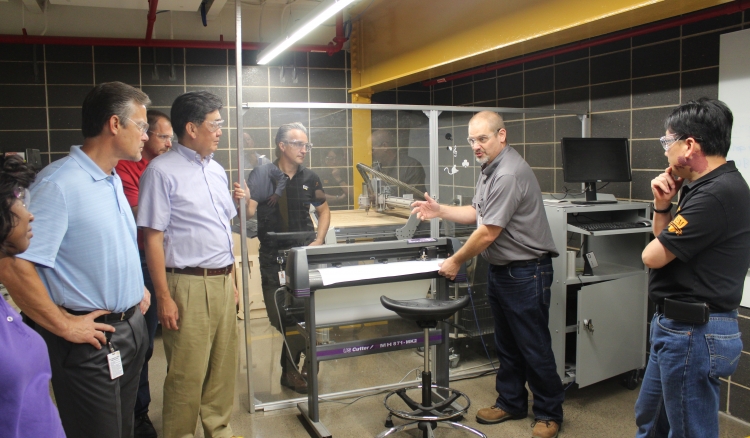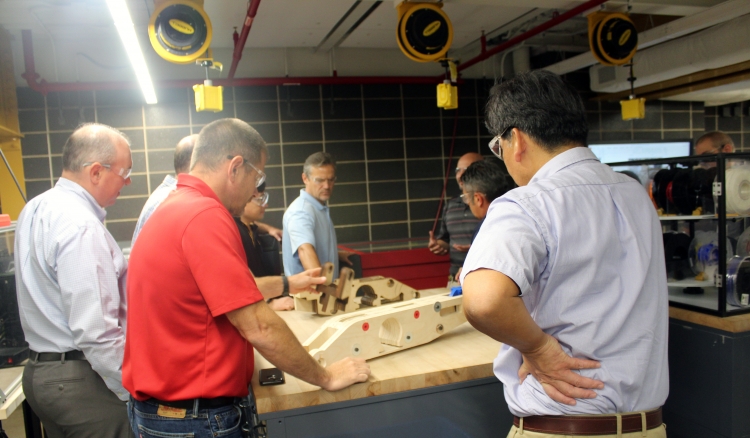 DePaul's Jayson Margalus worked with Caterpillar employees for more than two months on how to utilize the company's makerspace. (Photo courtesy of Jayson Margalus)
DePaul's Jayson Margalus worked with Caterpillar employees for more than two months on how to utilize the company's makerspace. (Photo courtesy of Jayson Margalus)
If you had access to a makerspace, what would you make? More companies are posing this question to their employees, resulting in state-of-the-art spaces that lead to the development of new innovative products. DePaul's Jayson Margalus has become a sought-after expert on advising companies how to best incorporate makerspaces into everyday work life.
Caterpillar, the construction and equipment company based in Peoria, Illinois, is one example.
After opening a makerspace in 2016, Caterpillar reached out to Margalus for help training its employees. The collaboration led to the development of a program that certifies employees on makerspace equipment, including laser cutters and 3D printers. The certification allows employees to build parts and tools for mining equipment, diesel and natural gas engines, industrial gas turbines, diesel-electric locomotives and other tools used by the company.
"This program is exclusive to DePaul," says Margalus, who is an instructor in the College of Computing and Digital Media. "It gives Caterpillar the opportunity to train employees trained in all of the state-of-the-art equipment."
Caterpillar wanted a space and program that would allow employees to turn their ideas into realities. Margalus worked with Caterpillar employees for more than two months on how to utilize the makerspace. The prototypes created by Caterpillar employees serve as quicker and more sustainable ways to improve the company's products. The certification program includes robotics, 3D printing and desktop manufacturing.
Margalus has designed and developed makerspaces for more than 10 years. He runs the
Chicago Southland Mini Maker Faire, a gathering of "makers" of all ages who show off what they made over the past year, as well as what they learned. He also works with Spacelab, a non-profit community makerspace run in Mokena, Illinois that promotes literacy in technology, crafting and hands-on making skills.
He launched his most recent project, however, on DePaul's Loop Campus in September with the opening of the IRL or Idea Realization Lab. The lab contains top of the art creative tools including 3-D printers, a laser cutter and even a button maker.
"It is important that students have a space to create and tinker on projects so they can show companies what they can do," Margalus says. "The certification program and the IRL Lab give valuable time and space for people to work on ideas and contribute to their job in a different way."
Margalus hopes to establish additional makerspace certification programs with other organizations in the future.
 Caterpillar's makerspace gives employees the opportunity to develop prototypes and test new ideas. (Photo courtesy of Jayson Margalus)
Caterpillar's makerspace gives employees the opportunity to develop prototypes and test new ideas. (Photo courtesy of Jayson Margalus)